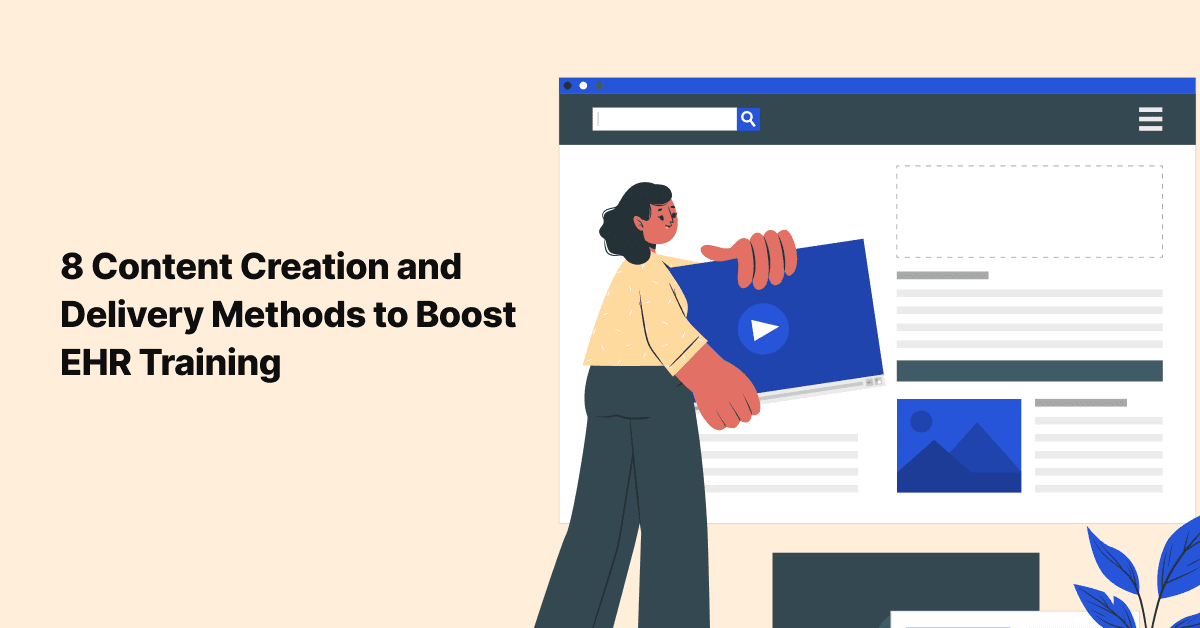
Reasons For Hospitals To Hire A Certified Epic Trainer
There is no doubt that some of the best resources available to support hospitals and health systems …

The worlds of technology and medicine probably couldn’t seem further apart, but with the advancements in patient care and population health management via healthcare IT, that gap is closing. What isn’t quickly closing, however, is the understanding of what it takes to implement healthcare IT and what it takes to use that technology to care for patients. Developers rarely speak clinical, and physicians rarely speak tech. This is a disparity that simply cannot be overlooked, lest your Epic Go-live meet a gruesome and expensive fate. Enter: The Physician Champion. We cannot overstate the importance of this role for supporting EHR Go-lives for large health systems, and today we’ll examine a few reasons for embracing this pivotal player on the implementation team.
The job of a designated Physician Champion is to serve as the liaison between the technical resources hired to build, test and deliver the technology component (such as an EHR or HIE), and the clinical end users who will be expected to adopt the new solution into their daily practice. There are no shortage of details and tasks to make this happen, including:
Not only is this person — or persons, if you’re fortunate — going to help build the best possible solution for delivering patient care, but they’ll often also serve as early adopters. This goes a long way for gaining early feedback and momentum, critical for seeing a launch go well and maintaining traction for full adoption.
The right fit for this role may somewhat vary based on the client. For example, if the health system is largely focused on acute care, then an ED-based MD may be a prime candidate to best speak to the nature of the care provided. But a few elements that consistently make for an ideal candidate are:
By tapping a natural leader, well-respected in their field, the job of the Epic implementation team gets a heck of a lot easier.
Looking at this flip side of this role, if you’ve got the wrong resource in this seat, the team — and project as a whole — could be headed for a train wreck. We’ve seen bright physicians hired to fulfill this need based on their availability and zeal for the project, but at the end of the day, their understanding of EHRs and the development process was woefully under calculated. On the other hand, we’ve also witnessed tech-savvy doctors with all the right skills to bring a solid product to end users, but their clinical responsibilities preclude the kind of involvement necessary to actually make use of those skills.
One of the wisest moves that an Epic Project Manager could make is to recognize when the right resources — in any role — are not sitting in the right seat. The Physician Champion is certainly no exception, and failing to address concerns when this vital team member isn’t performing could lead to a false sense of security and, ultimately, an expensive implementation effort that never lands or provides value.
Join over 3,200 subscribers and keep up-to-date with the latest innovations & best practices in Healthcare IT.

There is no doubt that some of the best resources available to support hospitals and health systems …

I’m sure you've invested considerable resources into training your EHR users.
Yet, here's a startling fact: …

In the bustling realm of healthcare, where every second counts, Electronic Health Records (EHRs) are like …